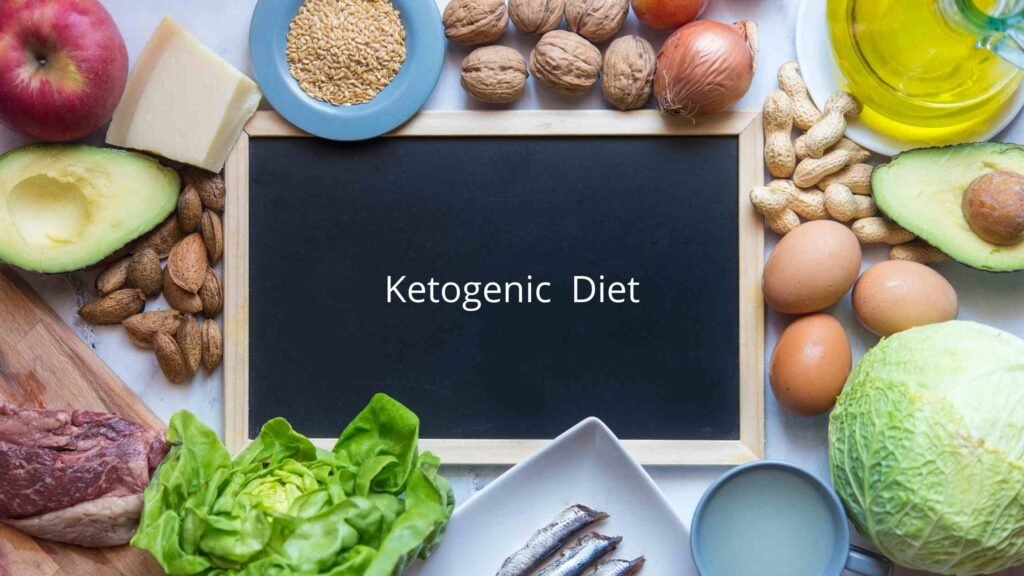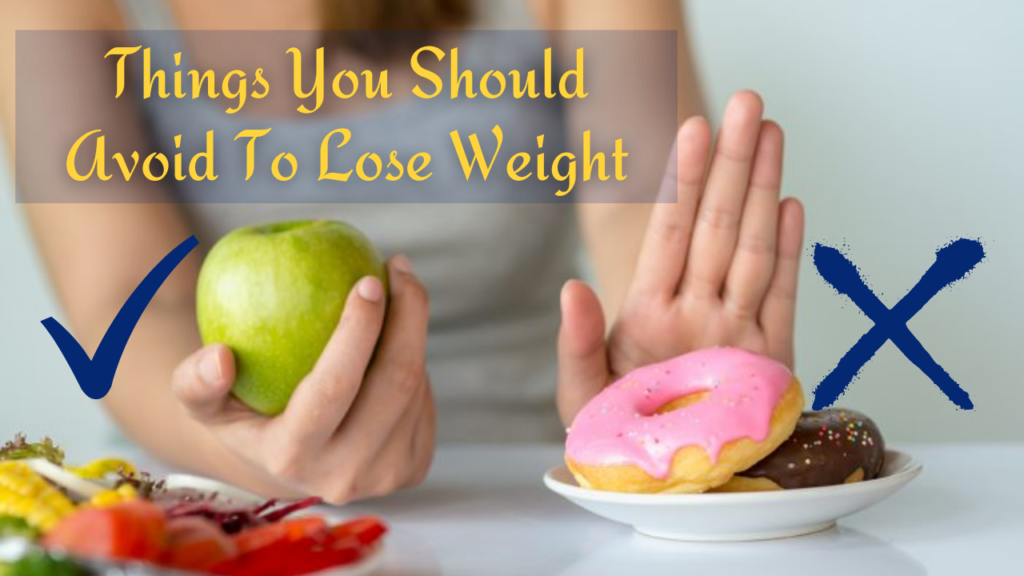If you ever thought that only cutting on fats helps you lose weight, you probably missed hearing about the ketogenic diet. The ketogenic or keto diet has taken social media by storm in the last few years. And the Instagram influencers are talking more about this popular form of dieting for weight loss in which one can eat fats and still lose weight. And as weight loss is a significant concern for every dieter, people who claim to achieve commendable results from a ketogenic diet are transforming into a primary motivators.

A ketogenic diet for weight loss includes a drastic reduction in carbohydrate intake. But the conclusion of the ketogenic diet is as beautiful as weight loss and overall improvement in people’s physical health and mental clarity.
If you have heard your friends discussing the ketogenic diet quite often now and if you skipped giving it a try as it sounded like another fad, the truth about the keto diet is it has existed for over 80 years and continuously has proven itself to be highly efficient for weight loss. Surprised?
Well, now we are sure you want to know more about the ketogenic diet and its benefits. This article aims to explain everything about the keto diet more straightforwardly so that you can gather proper foundational knowledge before you commit.
Read more about Things to Avoid to Lose Weight
What Is Ketogenic Diet?

The ketogenic diet is a high-fat and low-carb diet similar to Atkins and other low-carb diets. When you follow a ketogenic diet, your food habits will typically include eggs, butter, nuts, meats, cheese, oils, seeds, and some low-carb green vegetables. But does not that sound like foods associated with gaining weight? Well, the standard distribution of the ketogenic diet is gathering:
- 75% calories from fat
- 20% from protein
- 5% from carbs.
The ketogenic diet reduces ketone bodies that are metabolites of fatty acids. Those fatty acids are used instead of glucose to produce energy for your cells. And that is how the ketogenic diet drastically reduces your carbs intake and limits it to 20 to 50 grams daily.
History Of Ketogenic Diet
As mentioned earlier ketogenic diet is not a topic of today. But it has been used since the 1920s after its first introduction by physicians as a treatment measure for epilepsy. After that, this therapy was widely used for the next two decades. In the modern era, due to the epileptic drug treatments, the use of the ketogenic diet to treat epilepsy declined. By the mid-end 20th century, this therapy was again used in children’s hospitals but only in a small number. The primary idea behind incorporating a ketogenic diet for treating cases of epilepsy was derived from the rule of fasting in treating various diseases known to mankind for hundreds of decades. In the early 20th century, Americans embraced the idea of fasting to restore health, and the keto diet became popular.
Read more about 10 Simple and Effective Tips to Lose Belly Fat
What Happens To Your Body When You Take The Plunge Of Keto Diet?
Because of fasting and fewer carbohydrates, our cells gain energy from triglycerides derived from stored fat. When the liver breaks down the fat and produces ketones, it takes our body into a survival state known as ketosis. In this state, our weight tends to decrease while the energy levels improve.
But one needs to be extremely careful while trying the keto diet. When our body synthesizes fat, there is a high chance of excess production of ketones that can turn into poison to our body resulting in ketoacidosis.
A person with excessive body weight craves foods that are high in carbs. And giving up those foods is really painful. But our body produces more glucose and insulin when we eat more carbs. When followed correctly, the keto diet raises blood ketone levels. It provides our body with a new fuel source that causes us unique health benefits.
During a ketogenic diet, our body experiences unique situations. It undergoes many biological adoptions, including increased fat breakdown, reduced insulin levels, and more. But how to know if your body isn’t ketosis or not?
Read more about Regain Your Toned Young Body with CoolSculpting in Hyderabad
Here are a few common signs that will help you understand that you are in ketosis.
You Experience Bad Breath

We are not talking about the regular morning breath. But when your body reaches full ketosis, you will experience a terrible breath that is different from the ideal. Bad breath is a common side effect of many other diets, such as Atkins, and the bad breath is similar to a fruity smell. Though it is a positive sign for your diet, you might need to brush your teeth several times daily to solve the issue.
Bad breath during the ketogenic diet is caused by the increased ketone level. The specific culprit behind that breath is acetone. Acetone is a ketone that is present in the breath and urine. If you are taking gummies to keep the bad breath away, check on the level of carbs. Even those sugar-free gummies may raise your blood sugar levels, reducing the ketone level.
Reduced weight
The ketogenic diet is highly effective for weight loss for being a low-carb diet. Many studies have found that people who follow a ketogenic diet in the short and long term will likely experience weight loss soon after. Fast weight loss can occur during the first week of your ketogenic diet. Though many people think it is due to fat loss, it happens because of the primarily stored carbs and water being excreted from your body.
After the fast weight loss during the first week, you still need to stick to the keto diet and calorie deficit to continue losing body fat consistently.
Increased Ketone Bodies
The one primary change that happens to your body during a ketogenic diet is a reduction in the blood sugar level and an increase in ketones. When you keep following your ketogenic diet, your body starts burning fat and ketones as the primary energy sources. If you want to measure your ketosis stage, you can do that by measuring your blood ketone levels. A specialized meter measures your ketone levels and calculates the amount of beta-hydroxybutyrate in your blood.
Measuring the ketones is the most appropriate way to know that you are in ketosis. According to the researchers, your body is in ketosis when your blood ketones range from 0.5 – 3.0 mmol/L. But the only downside of this test is a tiny pinprick on your fingertip to draw blood.
Read more about Weight Loss Treatment Cost in Hyderabad
Change In Appetite
Many people also noticed that they feel less hungry during a ketogenic diet. The reason is not yet found; this is a common claim of most keto dieters. However, it is suspected that due to an increased protein intake, the hunger hormones of our body alter and lead to hunger reduction.
The ketones also convince our brain to reduce appetite while following a ketogenic diet.
Increased Energy
When our body starts something new such as a low-carb diet, it takes some time to adapt to burning more fat instead of carbs to generate energy for the cells. When you first start following a ketogenic diet, you may complain about feeling sick, tired, and experiencing brain fog. It is called ‘keto flu. However, when you follow a ketogenic diet for the long term, you will gradually experience increased focus and energy.
During ketosis, your body also starts burning ketones instead of glucose. It takes a few days for the body to adapt and work properly. Ketones are a highly potent source of fuel for our brain. They have also been tested to treat brain diseases, including concussion and memory loss.
Fatigue
When you switch to a ketogenic diet, fatigue is one of your most significant issues. It is a well-known side effect among dieters. Fatigue is a very natural side effect. As our body runs on a carb-heavy fuel system for a long time and is forced to adapt to a different system, it generally takes up to 30 days to reach the complete ketosis stage. This often happens before our body reaches the ketosis stage ultimately, but the ketogenic diet has many long-term benefits.
If you feel fatigued during the switch, you can take electrolyte supplements. Electrolytes are excreted as our body reduces its water content after switching to a ketogenic diet. If you add electrolytesupplements, try to get 300mg of magnesium and 1000mg of potassium daily.
Read more about A Complete Guide to Yoga for Weight Loss
Digestive Issues

As the ketogenic diet is very different from our regular diet that involves carbs, you may face specific digestive issues such as diarrhea and constipation as some of the common side effects at the beginning of a ketogenic diet. Those issues subside after the transition. But it is always better to be mindful about the foods you are eating that are causing you digestive issues.
Also, ensure you are eating enough healthy low-carb veggies with plenty of fiber. Don’t ever make the mistake of eating a diet that lacks diversity. Doing so will increase the risk of nutrient deficiencies and digestive issues.
Sleeplessness
Many ketogenic dieters complain that another big issue is insomnia or sleeplessness, especially during the first few days of their ketogenic diet. It happens because, in the ketogenic diet, we drastically reduce our carb intake. But this problem is a matter of a few weeks as many long-term ketogenic dieters claim that their sleep cycle improved after adapting to the ketogenic diet.
Some Remarkable Benefits Of The Keto Diet
It decreases your appetite
When someone is on a diet, they sometimes suffer from hunger. It is one of the many reasons many people feel wretched after starting the diet, and ultimately, they give up.
Eating a low-carb diet automatically reduces appetite. Studies have shown that when people cut carbs and eat more protein and fat, they take far fewer calories.
It helps in more weight loss.
One of the simplest and most effective ways to lose weight is to cut carbs. Studies have shown that people on a low-carb diet could lose more weight than low-fat diets. This is because low-carb diets help eliminate excess body water while lowering insulin levels and lead to rapid weight loss within the first week or two.
One study found that obese adults benefited from a low-carb diet for up to six months compared to a conventional Indian weight loss diet.
It helps to drop triglycerides drastically.
Triglycerides are fat molecules distributed in your bloodstream. It is a well-known factor that a high fasting triglyceride level makes a person prone to cardiovascular diseases.
When someone cuts carbs, they tend to experience a radical decline in blood triglycerides. Other low-fat diets often cause triglycerides to increase.
It increases the level of good HDL cholesterol.
Good cholesterol or high-density lipoprotein is beneficial for good heart health. A keto diet is one of the best ways to increase good HDL levels in the body. Therefore, patients with cardiovascular problems may follow a keto diet plan to increase good cholesterol in the body.
It reduces insulin levels.
A low-carb diet is beneficial to people with insulin resistance and diabetes. And it has impacted billions of people worldwide. Studies prove that slashing carbs from the diet can significantly reduce blood sugar and insulin levels. Some people with diabetes could experience a reduction of their insulin dosage by 30-50% almost immediately after following a low-carb diet.
But if you are suffering from type 2 diabetes and want to change your carb intake, talk to your doctor to adjust your insulin dosage.
It may lower blood pressure.
A person with elevated blood pressure or hypertension can suffer from many diseases, including stroke, kidney failure, and cardiovascular disease. Low carb diets effectively lower blood pressure, reduce the risk of those diseases and help you live longer.
It is effective against metabolic syndrome.
Metabolic syndrome is highly associated with the risk of heart disease and diabetes. Metabolic syndrome is a combination of symptoms including:
- High blood pressure
- High fasting blood sugar level
- Abdominal obesity
- A lower level of good cholesterol
However, a low-carb diet can effectively treat all those symptoms.
It’s good for several brain disorders.
Our brain needs glucose, as many brain parts can burn that type of sugar only. Our liver automatically starts producing glucose from protein if we don’t eat carbs. This is also the system behind the keto diet, which has been used for decades to treat children with epilepsy who don’t respond to drug treatment.
In many cases, it was found that the keto diet cured children suffering from epilepsy. Many studies are going on to prove the link between other brain conditions and ketogenic diets, including Parkinson’s and Alzheimer’s.
Final words
The Keto diet is becoming increasingly popular as more people switch to a keto diet.
But we always suggest you consult a doctor before shifting to a keto diet to understand if you are eligible for it. Preferably go for a doctor who specializes in ketogenic diets and thoroughly understands your body and its requirements before making any decision.
Your doctor might ask you to follow a few tests to determine if your body can take the plunge into a keto diet, or you might face the risk of harming your health. Eating high-quality fats improves our skin and balances the hormones in our bodies. Still, if you have specific food restrictions, it can be challenging to follow a keto diet for a prolonged period. Therefore, you must be careful about the quality of fats you are intaking. That is why appropriate guidance and supervision are mandatory before starting a keto diet.
